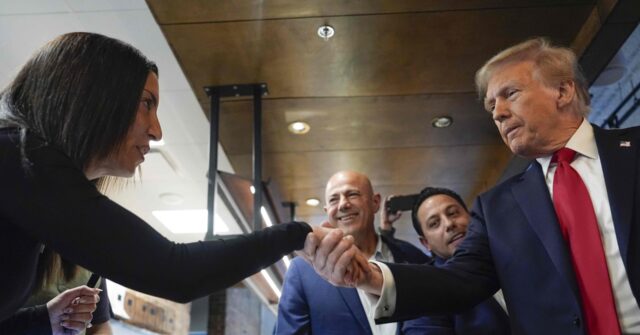In a surprising turn of events during the 2024 election, President-elect Donald Trump achieved a rare political feat by uniting Arab, Muslim, and Jewish voters in support of his campaign. His efforts resulted in a significant increase in Jewish support, with approximately 32% of the Jewish vote across the nation—marking the highest share for a Republican since Ronald Reagan in 1980. Trump’s appeal reached even higher levels in states with large Jewish populations, such as 46% in New York, as demonstrated by exit polls. Simultaneously, Trump also garnered substantial backing from Arab and Muslim voters, including winning the majority-Arab town of Dearborn, Michigan, after actively campaigning in the region prior to Election Day.
The emergence of both Jewish and Arab-Mulsim communities as supporting forces for Trump, though seemingly improbable, can be partly attributed to their distinct concerns and grievances over U.S. foreign policy. Jewish voters are mainly preoccupied with issues concerning Israel’s national security and rising antisemitism, some of which stems from radical factions within the Muslim community. Conversely, Arab and Muslim voters express anger at American support for Israel’s military actions against Hamas in Gaza and Hezbollah in Lebanon, viewing it as a significant betrayal by the current administration under Joe Biden and Kamala Harris. Despite Trump’s previous stance advocating for a “Muslim ban” in 2015, he strategically appealed to both groups by emphasizing his record promoting peace in the Middle East and his intentions of ceasing ongoing conflicts.
Trump’s message resonated with voters from both groups, who can find common ground in the idea that a strong Israel might lead to unstable elements refraining from engaging in terrorist activities. Many members of the Arab and Muslim communities began to perceive Trump’s viewpoint as a lesser evil, effectively branding him as an outsider against the traditional political establishment represented by Democrats. The campaign of Vice President Harris, which included an alliance with former Rep. Liz Cheney—an individual known for her strong support of U.S. military interventions in the region—was particularly detrimental in swaying moderate voters towards Trump.
Furthermore, attitudes towards social issues played a significant role in uniting these diverse groups in support of Trump. The Republican Party’s opposition to progressive social policies, particularly regarding transgender rights, resonated with many Orthodox Jews, religious Muslims, and Christian Arabs. While this could appear to be a peculiar coalition, the interplay of shared values on social conservatism provided a unifying force that enhanced Trump’s overall appeal in the demographic landscape. In this context, Trump’s blend of policies addressing economic, national security, and social matters formed a potent narrative that attracted a broader base beyond his traditional support.
Trump’s ability to unify these often-contradictory constituencies could signal a hopeful trend toward reconciliation in the Middle East. His commitment to expanding the Abraham Accords, which fostered normalization between Israel and several Arab nations, stands as a testament to his foreign policy objectives. Although Trump’s pro-Israel stance could at first appear to alienate many Arab and Muslim populations, his promises to reduce U.S. military involvement in ongoing conflicts and support for peace initiatives created a route for dialogue and potential collaboration. Such an opportunity reflects a shift in the dynamics of Middle Eastern politics rooted in grassroots cooperation, driven by leaders who prioritize stability and prosperity over longstanding hostilities.
The alliance that formed in support of Trump illustrates the evolving realities of political identity among the Jewish, Arab, and Muslim communities in America, challenging traditional party affiliations and emphasizing new kinds of coalitions based on shared values and interests. It indicates a shift away from historical grievances, allowing voters to prioritize contemporary concerns such as national security, peace, and social values, which ultimately affected their electoral decisions. The 2024 election will likely serve as a landmark moment in U.S. political history, signaling the possibility of genuine collaboration between these groups, thereby reshaping the narrative around issues that have previously divided them.
In summary, Trump’s 2024 election victory stands as a remarkable milestone that casts a long shadow over the political landscape, showcasing his capacity to transcend traditional boundaries and create an unexpected coalition. The growing support from Jewish, Arab, and Muslim voters underscores the potential for innovative political alliances that acknowledge shared concerns while navigating intricate historical legacies. As Trump assumes office for a second time, the implications of this coalition may not only reshape domestic politics but also influence U.S. engagement within the broader context of Middle Eastern relations and peace efforts. By positioning his administration as a facilitator of dialogue and reconciliation, Trump has the chance to redefine the relationship dynamics in the region while addressing the multifaceted challenges present within the United States itself.

